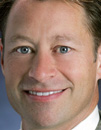Nationwide Financial Network, the sales and marketing arm of Nationwide Mutual Insurance Co., has informed the 200 independent financial advisers that clear through its brokerage to find a new broker-dealer by April 30.
Nationwide Financial Network, the sales and marketing arm of Nationwide Mutual Insurance Co., has informed the 200 independent financial advisers that clear through its brokerage to find a new broker-dealer by April 30.
The change by NFN was the latest in a series of strategic moves aimed at distancing the firm from independent representatives in order to concentrate on driving sales of property-and-casualty products through its 3,600 exclusive agents, Tom Houle, vice president, national sales manager, said in an interview.
Industry observers said the decision by Nationwide also highlights just how difficult it is for companies to manage a broker-dealer. Like many others before, they said, the insurer likely reassessed the return on investment of its various distribution channels and found that it didn't make sense to keep supporting its independent advisers with its brokerage capabilities.
CAN NO LONGER CLEAR
In a Jan. 14 e-mail, NFN told the 200 independent advisers, most of whom joined the organization through Nationwide's 2002 acquisition of Provident Mutual Life Insurance Co., that after the April deadline, they can no longer clear through Nationwide Securities, its brokerage arm. NFN has an additional 2,300 independent “personal-producing general agents” who already clear through other broker-dealers.
Independent advisers who cleared through NFN's broker-dealer were first told in November 2008 that they could work as exclusive agents at the firm or they could become completely independent. The 200 advisers who chose to remain independent gave up office support services, but saw their commissions bumped up to 90%, from 50%, said one of the advisers affected by the move, who requested anonymity. Mr. Houle said most of the other advisers chose to become exclusive agents, but he could not provide an exact number by press time.
Last October, Steve Rasmussen, chief executive of Nationwide Mutual Insurance Co., shook up its management team: Kirt Walker, formerly president of Nationwide Insurance, was tapped to be president of Nationwide Financial Services Inc., the investment and retirement arm of the company. Mr. Walker then put John L. Carter, who was president of Nationwide Financial Distributors Inc., in charge of NFN.
“These moves led up to this decision,” Mr. Houle said. “This will allow us to be more focused on the representatives who primarily are property-and-casualty agents.”
Nationwide also decided that the independent advisers would be better-served by outside broker-dealers, Mr. Houle said. “These representatives are now free to go wherever they want,” he said. Mr. Houle declined to say what percentage of business came from this group of 200 advisers.
Phillip Palaveev, president of Fusion Advisor Network, a coalition of insurance agents and financial planners, said the decision indicates the risk involved with a non-broker-dealer managing a brokerage arm. “It's very difficult to be a broker-dealer, but especially a broker-dealer with independently contracted advisers, because it's very costly, it's very competitive, and the liabilities are very high,” he said. “The operational requirements are very slim, often negative in tough times, and the competition is fierce.”
Mr. Palaveev added: “At an insurance company, the broker-dealer is the side dish. It's kind of like the broccoli.”
All it takes is to have one rogue adviser to cause a huge compliance issue, said Dennis Gallant, president of consulting firm GDC Research.
“The risks involved with maintaining this channel were probably not worth the returns,” he said. On average, margins for the independent channel range from 3% to 6%, Mr. Gallant said.
The market swoon of 2008 probably drove some of the decision making, said Elvin Turner, managing director of Turner Consulting LLC. “Traditionally, a lot of companies didn't know what their investment in a particular distribution channel would buy them, but after the market downturn, many of them have realized they don't want to continue to live like that,” he said.
By focusing on exclusive agents, NFN can maintain control of its sales efforts and track the return on investment, he said.
Nationwide's announcement has prompted some observers to wonder if the firm might sell its broker-dealer, but Mr. Houle said the firm has no plans to do so. One-third of its exclusive agents are registered representatives with Nationwide Securities, and thus the firm wants to keep the broker-dealer, he said. Nationwide clears through Pershing LLC.
While many industry experts said that Nationwide's strategy makes sense, some wondered why the firm didn't give independent advisers more time to make the transition.
“They have put those advisers in a tough position,” Mr. Palaveev said. “It takes one to two months for an adviser to research all of their broker-dealer options.
The independent broker who declined to be identified said that he was offended by how NFN handled the announcement of the switch. “At least 70% of my business came from Nationwide products,” the broker said. “And now I am going to lose one to two months of income dealing with this changeover when I should be selling product.”
NFN plans to do everything it can to support these advisers, Mr. Houle said, and is now setting up meetings between the agents and potential broker-dealers. On top of helping advisers make the switch, Nationwide has increased to 30, from two, the number of regional life consultants supporting all 2,500 of its independent advisers, he said.
“These are good relationships, and we are going to work hard to continue them,” he said. “If a representative raises his hand and says he needs more time, we will do that.”
E-mail Jessica Toonkel Marquez at jmarquez@investmentnews.com.







